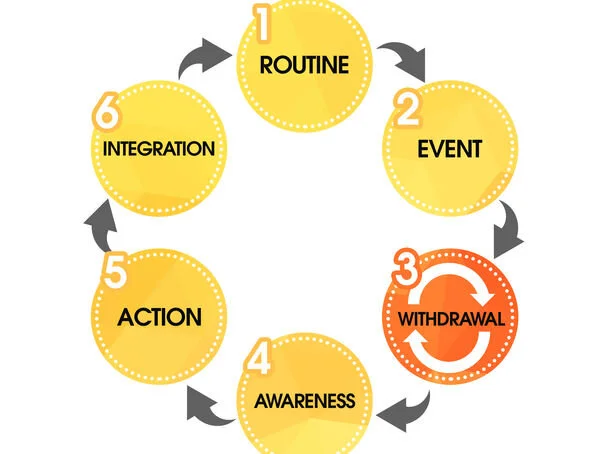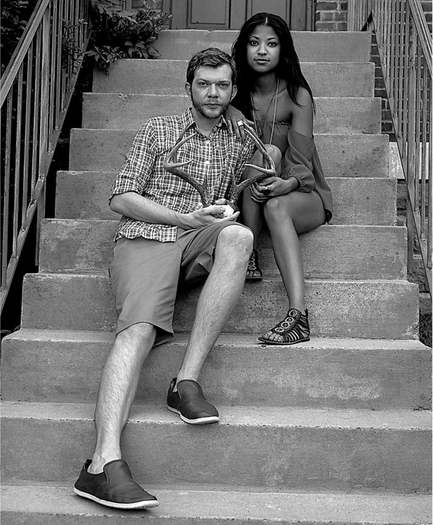It’s ok to not feel ok
Embracing your feelings to be able to overcome them and let them go
Interesting post about the importance of self regulation in trauma therapy
Odelya Gertel Kraybill explain in her post how including the body is so important in trauma therapy as self regulation tool. To know more read the full article: https://www.eti.training/post/experiential-self-regulation-in-trauma-therapy
CORONAVIRUS: PSYCHOLOGICAL VADEMECUM FOR CITIZENS
Vademecum to keep calm from the Italian Ordem of Psychologist
How fears can turn into panic and how to protect yourself with proper behavior, correct beliefs and well-founded emotions.
This short vademecum is not meant to be exhaustive or to substitute professional help. Rather, it is a contribution which aims to better orient our thoughts, emotions and behavior - both individual and collective - in the face of the Covid-19 issue. We hope this short reading will be useful to you. David Lazzari - CNOP Chairman - 26th February 2020
When mixed with confusion and overwhelm, fear becomes unhelpful
Fear is a powerful and useful emotion. It has been selected from the evolution of the human species to prevent dangers, and it is therefore instrumental to avoid them. Fear works well if it is proportionate to dangers. This was the case as long as people had first-hand experience of the dangers, and they voluntarily decided whether to face them or not. Today, many dangers do not depend on our experiences. We learn about dangers because the media cover them, and messages which circulate on the web exaggerate dangers as well.
As a result, fear becomes exaggerate if compared to the objective risks arising from the frequency of the dangers. In these cases, fear turns into panic and ends up causing damages. For instance, after 9/11 many Americans panicked about catching flights, and many of them decided to travel by car.
In the period thereafter, the number of people who died on the roads soon doubled the number of people traveling on 9/11 flights hijacked by terrorists. The panic had resulted in counterproductive individual choices that, when aggregat- ed, became collective damage.
Fear takes the shape of unknown, rare and new phenomena, and the diffusion of the Coronavirus has precisely these characteristics. To date, deaths from non-Coronavirus flu are much more frequent. Why aren't we afraid of these deaths? Because we are accustomed to known forms of flu, up to the fact that many Italians even ignore the preventive benefits of vaccines.
The mechanism is the same of the plane/car case: on the one hand we have the fear of flying by plane, and on the other hand the choice of driving a car under our control. To avoid the diffusion of disproportionate fears, which might create forms of individual anxiety and collective panic, we propose an "anti-panic decalogue". Some "key takeaways" that can help avoiding two possible mistakes: overestimation or underestimation of the problem.
Anti-panic decalogue
Stick to the facts, i.e. the objective danger.
The Coronavirus is a contagious virus, however as pointed out by a WHO source, out of 100 people who get sick, 80 recover spontaneously, 15 present problems manageable by healthcare system. Only 5 out of 100 have more serious problems, and among these the number of deaths is about 2.5, generally involving patients with pre-existing relevant diseasesDo not confuse a single cause with a collateral damage
Many deaths are not directly and straightforwardly caused by the action of the coronavirus, as it happened and it is happening in flu forms that involve much more deaths. So far in the world, coronavirus-related deaths are estimated to be a hundred times fewer than those caused by the common flu every year. And yet, this 1% is perceived differently from "normal deaths". Until now, nobody was concerned about a strong annual variability because all deaths were attributed to "normal" flu: in the last flu season, 34,200 Americans passed away, and the year before 61,099.If panic becomes collective, many individuals feel anxious and they want to act to lower their anxiety. This can generate stress and irrational and unproductive behavior.
The more people panic, the less they pay attention to objective data. Accordingly, judgement capacity may weaken.
In order to do something, we often end up doing the wrong thing. This means we ignore simple, apparently trivial, very effective protective actions (see list below).
Generally speaking, too many emotions prevent correct reasoning and hinder the ability to see things in a right and wider perspective, i.e. we tend to widen the space-time approach with which we examine phenomena.
It is difficult to counter emotions with rationale reasoning, but we should try to rely on objective data. The fundamental rule is to balance fear and objective risk.
This simple figure allows to locate the fear of the coronavirus in perspective.
At the top, the figure shows the dangers people are more afraid of than they normally should be. In these cases, public outrage can cause panic and, consequently, disproportionate and harmful anxieties. In the lower part, on the contrary, we can find the dangers we are accustomed to, and which do not cause fear. The disproportion between the areas of the two circles shows how much difference there is between subjective fears and objective dangers.
(Source: Paolo Legrenzi, A tu per tu con le nostre paure. Convivere con la vulnerabilità, Il Mulino, 2019).
9. The figure offers an aggregate description of fears: public indignation enhanced by the media accentuates some fears, such as those related to terrorist attacks and armed criminals. This fact leads us to underestimate other objective dangers to which we are accustomed. The characteris- tics of coronavirus panic bring this phenomenon closer to the sudden and impressive phenomena that induce panic by raising public indignation.
10. We are concerned about our own and our loved ones vulnerability. That's why we try to make people we care invulnerable. However, the obsessive search for invulnerability is counter-produc- tive, because it makes us excessively fearful. In addition, we become unable to face future chal- lenges because we over concentrate on ourselves.
Three good practices for dealing with the coronavirus
Avoiding compulsive search for information
We have seen that it is normal and functional to be afraid of a new risk, such as the coronavirus disease. Being anxious, looking for reassurance, continuously checking information: all of these are understandable and common behaviors on these days. Yet, fear can be reduced if people reflect carefully on their relationship with objective dangers in order to clearly know what happens and what to do.
Using and disseminating reliable information sources
It's good to stick to what's known and documented. Therefore: rely ONLY on official, updated and accredited information sources.- Ministry of Health: http://www.salute.gov.it/nuovocoronavirus
- Higher Institute of Health: https://www.epicentro.iss.it/coronavirus/- WHO: https://www.who.int/emergencies/diseases/novel-coronavirus-2019
The Ministry of Health, the Civil Protection, and the National and Regional Healthcare System have experienced and skilled specialists who work together to deal with the current situation and its developments with great rigor, attention and available resources.
This is a collective, not a personal phenomenon
Coronavirus is not a phenomenon that affects single individuals. As with vaccines, we must protect ourselves as a responsible community. The media produce information that can create distorting effects. Media focus on news in rapid and disturbing sequence on individual cases, rather than on the overall and objective data of the phenomenon. It is important to take thi
After thoughts and emotions, we need behaviors
The Higher Institute of Health indicates simple individual preventive actions (https://www.epicentro.iss.it/coronavirus/). Here they are enlisted:
Avoid close contact with people suffering from acute respiratory infections.
Washing hands and disinfection are the key to prevent infection.
Wash your hands often and thoroughly with soap and water for at least 20 seconds, down to the wrists.
If soap and water are not available, you can also use an alcohol-based hand disinfectant with
at least 60% alcohol.The virus enters the body through the eyes, nose and mouth, so avoid touching them with unwashed hands.
Cover your mouth and nose if you sneeze or cough; use disposable handkerchiefs.
Use the mask only if you suspect that you are ill or if you look after sick people.
Do not take antiviral drugs or antibiotics unless prescribed by your GP.
Contact the 1500 free of charge number if you have been back from China for less than 14 days and you have fever or cough.
If you are sick and you present symptoms compatible with the Coronavirus, contact your GP or 118, without going directly to the clinic or emergency room (to reduce any risk of infection to third parties or healthcare staff).
Strictly respect only the official measures and indications of the Public Health Authorities: they represent a precious protection for everyone.
A regular use of these elementary actions significantly reduces the risk of contagion for yourself, for those close to you and for the community as a whole.
Which news to care for in the "information fog"
It has been called "infodemia" the contagion and the diffusion of the news: watching the TV, opening newspapers or going online you are flooded with all kinds of information about the Coronavirus. Real experts and fake experts, improvised specialists, people who report the "heard" say or the "heard" read. In this field, reasoning with "popular sense" leads often to wrong conclusions.
A state of "permanent psychological alarm" that results in "public indignation" should be blocked or ignored. This tends to increase the perception of risks, and people are desperate looking for more reassuring information. The media's aim, however, is to attract attention and expose users mostly to alarming reports, then increasing the disproportion between objective dangers and personal fears.
Conclusion: reduce overexposure to media information. The simple information above is sufficient. Once you have the basic information about what is happening and what to do, you can simply check the updates on the reliable sources mentioned above.
This gives you all the information you need to protect yourself, without being overwhelmed by an uninterrupted stream of "anxiety alarms". It is good to protect children as well. If they interrogate us, we will always be available to talk calmly about what they may have heard. It's better not to expose them to alarming information.
Act collectively for a collective phenomenon
Even if you have a correct idea of the phenomenon and you do not feel any unfounded fear, it is good helping others by telling them in simple words our decalogue and the recommendations listed here.
That is, despite the public outrage and panic caused by many traditional and social media, you have the opportunity to serve as force for good. How? By providing the simple information mentioned above and by thinking calmly and patiently instead of ignoring or, worse, despising those who do not know and refuse to think.
One must remember Alessandro Manzoni famous words in relation to the plague of Milan in the XVII century: "The good sense still existed; but it was kept concealed, for fear of the popular sense". We are going to undermine popular sense: unlike Manzoni, with science and rationality rather than good sense. Psychology allows us to understand in a rational way even what is not presented as such: something needs to be understood and respected.
Actions pursued in an informed and responsible way increase the likelihood to protect our community and each one of us.
Do not be ashamed to ask for help
If you think your fear and anxiety are excessive and they create discomfort, don't be afraid to talk about it and ask a professional for help. Psychologists know these problems and can help you.
We all may need, in certain moments or situations, advice and support. That could help to get clearer ideas about what we feel and, and to better manage our emotions. This should not make us feel "weak".
Those who ask for help are not weak: they try to increase their own resources and those of their loved ones.
(thank Prof. Paolo Legrenzi, professor emeritus of psychology at Ca' Foscari University in Venice and expert in psychology of emotions and decisions for the collaboration).
Love without borders
Pictures from Donna Pinkley from the series “Sticks and Stones”
When you start a life as an expat, you are moved by curiosity, probably a drive to discover what is happening outside of your world and a thirst for challenges, new cultures, new ways of thinking, new working and living experiences.
It is at the same time very exciting and scary, and if you manage to overcome the first difficult steps you might even find yourself emotionally engaged with someone from a different culture. As an expat you meet people of different origins and get more accustomed to intercultural couples as they are probably more common than back home.
There are different conditions that make us fall in love, usually we don’t choose logically; after the initial passion we get to know the other more and that’s when we face the first difficulties.
According to researchers, all couples face similar issues, but for intercultural couples, cultural aspects can crop up and create even more challenges. There is a need for extra attention in taking the time to know the other, as well as to understand how our upbringing can influence the way we relate to each other. Depending on the country where you grew up, you may have very different expectations related to your partner’s role: culture, religion and society shape an ideal of what to expect from your partner and it is sometimes difficult to be aware of that until you start going through different stages of your relationship such as living together, getting married or creating a family.
Romeo is a European man married to an Asian wife, he has two children, his wife works in a shop and since he lost his job and struggles finding a new one, their relationship has worsened. His wife thinks he should be the financial provider. She is so upset, she struggles to have a positive attitude towards him, she’s unable tot value the time her husband now invests on their children and his role at home. As his wife thinks poorly about him it is also harder for Romeo to value what he is doing and develop the self-esteem he needs to confidently job hunt.
If gender role expectations are a challenge, different speaking styles can also contribute to worsening the communication in a couple.
Khanitta from Thailand often smiles when her husband from America is unhappy and complaining about something. When she smiles, her husband thinks she is not taking him seriously, and this makes him really angry. On the other hand, Khanitta feels aggressed when he scolds her, she feels embarrassed and she doesn’t know what to answer: her smile is a sign of distress, a way to ease the tension and show kindness to her husband.
How we verbalise our feelings or how we communicate our needs can be very different according to education, culture and upbringing. We can value direct, straightforward communication, as in the case of the American husband or we may prefer to indirectly hint a message to be more polite, as in in Khanitta’s case. In some cultures it is appropriate to raise your voice to claim your rights, in others if you do so you “lose face”. Verbalising feelings and needs is not easy, and when you also need to take into account your partner’s extended family, you might find yourself in another difficult situation to read and to handle.
From a family-centred society model, to an individual-centred one, the role of the extended family can be very different and the expectation about the involvement of relatives in a marriage can trigger heavy conflicts.
Giacomo felt really weird when he went on his honeymoon accompanied by his parents in law, he was ready to start a more intimate relationship with his wife and he felt odd dealing with her family as well. On the other hand, the parents of his new wife were a bit upset because Giacomo’s parents were not involved during the wedding and not even during the honeymoon.
When the couple becomes a family and there are children involved, there are once again different expectations on the involvement of the extended family and their own gender role expectations.
Luke married Phone from Laos, when they had their firstborn, according to the traditional practice after delivery, Phone spent almost one month at home doing herbal sauna, sleeping and eating with her daughter. Her mother and sisters were taking care of her and the new-born, while Luke felt totally excluded. He wanted to have a role close to his wife and daughter, he wanted to create his nuclear family, while his wife and her family never considered his involvement in the care of the child.
Raising a child is a job we learn by doing and is very often a moment when it is difficult to integrate differences.
Sophia is a teenager third culture kid, she feels under stress for her studies, she starts to retire in her room, stays awake at night to study, stops eating regularly, her thoughts start to be very negative and her mood becomes delusional. Her parents start to fight as her mother would like to handle the situation according to her beliefs, through prayers and rituals involving traditional healers. On the other hand, her father is very dismissive of this approach and wants to take her to a doctor and to see a psychologist. It is very difficult for both of them to understand each other’s reasons and to find a common solution to support their daughter.
When raising children, the differences in the couple become more evident and it can be challenging to build common grounds to take what there is of positive from both approaches and to be empathic towards different ways to handling difficulties.
There are challenges when we get into a relationship, even more so when there are cultural differences, nevertheless there are some skills and coping mechanisms that can support the couple in building a successful relationship. As different gender role expectations can generate conflict and misunderstanding, a certain flexibility to challenge your own beliefs is a positive coping skill that supports couples to succeed. To be able to challenge your beliefs and perspectives, it is important to learn and respect each other’s culture to develop a healthier relationship. Through knowledge and appreciation for the cultural background of your partner it is easier to read differences, to understand them, and if not to fully accept them, at least to integrate them.
Learning a different language, trying new dishes, participating to traditional festivities, are all ways of showing interest in your partner and build a respectful and balanced relationship. With more knowledge it is easier to recognize similarities in your core value system and value those similarities more than the differences. It is about cultural deference, the ability to comply with different traditions. It’s not about losing your cultural upbringing, it is about growing your identity through curiosity and respect for the other.
It might seem strange, but humour is one of the best coping skills; it is the capacity to add fun to the relationship, to defuse tension and learn to decrease differences and prioritise what is important for the couple. It doesn’t mean making fun of the other, it means being able to laugh about ourselves and our reactions, to stop a possible situation of conflict and transform it into an opportunity to bond. It’s worth emphasising that sarcasm is not humour, as this is a destructive and aggressive way to communicate, while humour is about laughing together about parts of us, about our reactions, our culture and traditions.
There are several ways to be in a relationship; if gender role flexibility, cultural deference, recognition of similarities, general appreciation of other cultures and humour are a good start, there is an ultimate coping mechanism shown by successful intercultural couples: cultural reframing. This goes beyond emphasizing similarities and accepting differences, it is about taking advantage of the best part of both cultures, to develop a common ground, a so-called “relational identity”. Successful couples can “reframe” their cultural stressors and differences creating a new set of values, rules and traditions, a sort of “third culture” of the couple.
Pictures from Donna Pinkley from the series “Sticks and Stones”
To start with the best resolutions this 2020
Do you ever feel you are not enough?
You are not the only one.
If your self esteem seems to be more related to what the others think than what you truly want, you can challenge this mindset and find a new way of valuing yourself. Feeling not enough can stole dreams, ambitions, relationships, health and happiness away from people.
Meagan O’Reilly psychologist at Stanford University’s Vaden Health Center in Palo Alto, suggests these 4 ways to start challenging the not-enough mindset.
Childhood attachment styles
An infographic about childhood attachment styles for a quick understanding of how it can influence our adult relationships
Hope in dark times
Resisting the defeatism of easy despair
“The stories we tell ourselves about our public past shape how we interpret and respond to and show up for the present.
The stories we tell ourselves about our private pasts shape how we come to see our personhood and who we ultimately become.
The thin line between agency and victimhood is drawn in how we tell those stories.”
Rebecca Solnit’s reflections on how to sustain hope in our time or readily available despair.













